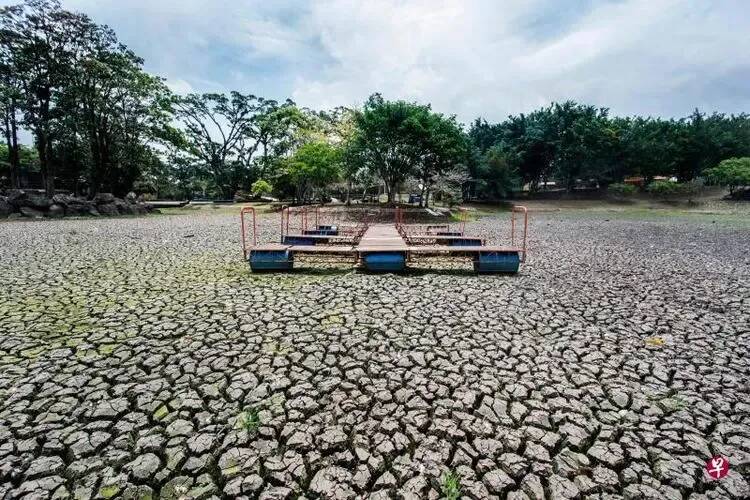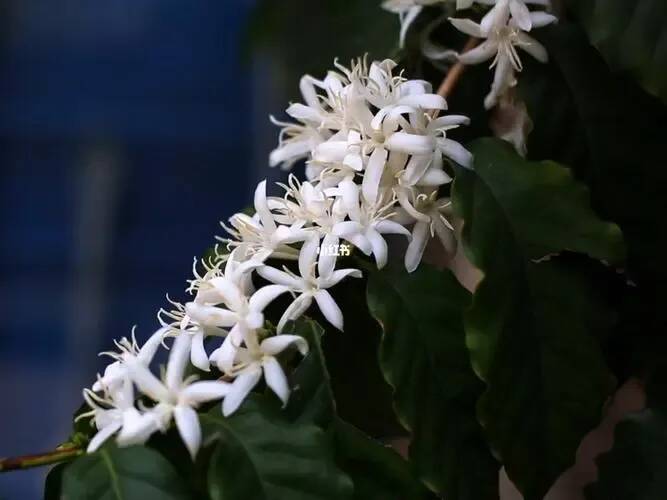Weather change harms Costa Rica's coffee industry! Production will be reduced in the future
Costa Rica is one of the world's major coffee producers and exporters. Because the country has fertile volcanic soil, mild climate and abundant rainfall, it provides good natural conditions for coffee planting.
However, it is reported that Costa Rica has been suffering from problems such as high temperatures and droughts in recent years, and these problems have affected Costa Rica's coffee growing environment and will cause serious production cuts in Costa Rica.

According to reports, in Desamparados County, San Jos Province in central Costa Rica, which is also the country's main coffee producing area, many coffee plantations here have experienced production reduction problems, with some plantations reducing production by 15%.
A local farmer said that in the first half of this year, the local temperature was significantly higher than before and there was insufficient rainfall, which affected the flowering and fruiting of coffee trees in the new season.

Rainwater is very important to the flowering process of local coffee trees. Costa Rica should have entered the rainy season in April, but there was no rain in the local area from March to April this year. The coffee tree buds could not bloom because they did not get enough water. As a result, the number of coffee fruit picked is lower than in previous years. In addition, the environment where coffee grows is hotter, making coffee trees more sensitive to some fungal diseases. It is expected that coffee production will decrease during the 2024/25 harvest period.
In addition, Costa Rican coffee trees are currently facing large-scale aging problems, and planting new coffee trees also requires water. However, there was only a few days of rain in May this year, but the rainfall was small, so the work of planting new coffee trees was postponed until June. However, this disrupted the normal pace of plantation work and increased management costs. In addition, due to the rising temperature, coffee beans in low and high altitude areas basically mature at the same time, but there is not enough labor force to collect them.
Moreover, about 27,000 coffee growers in Costa Rica are facing these problems. According to the Costa Rican coffee industry report released earlier, coffee production in the 2023/24 quarter was 1.44 million bags (60 kilograms/bag), but by the 2024/25 quarter, coffee production is expected to be 1.18 million bags, a decrease of 18%.
The decrease in production will also lead to a decrease in exports. The report predicts that exports in the 2023/24 quarter will be 972,000 bags (60 kg/bag). However, more than 80% of the coffee produced in Costa Rica is exported. Exports have decreased and foreign exchange earnings have also decreased, which may cause unemployment problems.
However, the Costa Rican government, coffee growers and scientific research structures are currently adopting a variety of responses to mitigate the negative impact of climate change on the coffee industry.
The Costa Rican government has recently launched a "low-carbon coffee plan", which will promote the greening and low-carbon of the relevant environment in the coffee planting and production chain through financial subsidies and preferential loans, reduce the use of chemical fertilizers and water resources, and optimize the management system.
Many research institutions, including the Costa Rican Coffee Institute, are promoting coffee growing methods that are more suitable for local climate conditions and developing drought-resistant coffee varieties to assist the development of the Costa Rican coffee industry.
Important Notice :
前街咖啡 FrontStreet Coffee has moved to new addredd:
FrontStreet Coffee Address: 315,Donghua East Road,GuangZhou
Tel:020 38364473
- Prev

Introduction to Alpine Estate of Nicaragua's 2024 Excellence Cup COE Champion
In the Americas, because it is located in the coffee growing belt and has suitable geographical environment and other conditions, many countries grow coffee, such as Nicaragua, Panama, Costa Rica, Honduras, etc. Although Nicaragua is not as well-known as other producing countries, its coffee growing conditions are no less than those of other Central American countries. Nicaragua Ni
- Next

Looking to Starbucks? Lucky also produces ice shock condensation!
▲ Click to pay attention| Daily Boutique Coffee Culture Magazine Coffee Workshop A few days ago, Lucky launched two limited iced drinks in Guangzhou and Shenzhen, allowing Guangzhou and Shenzhen fans who were tortured by high temperatures to drink cool drinks to dispel the scorching heat. It also really made fans in other regions of the country envious and bluntly asked Lucky to hurry up
Related
- What grade does Jamaica Blue Mountain No. 1 coffee belong to and how to drink it better? What is the highest grade of Blue Mountain coffee for coffee aristocrats?
- What are the flavor characteristics of the world-famous coffee Blue Mountain No. 1 Golden Mantelin? What are the characteristics of deep-roasted bitter coffee?
- Can I make coffee a second time in an Italian hand-brewed mocha pot? Why can't coffee be brewed several times like tea leaves?
- Hand-brewed coffee flows with a knife and a tornado. How to brew it? What is the proportion of grinding water and water temperature divided into?
- What is the difference between Indonesian Sumatra Mantinin coffee and gold Mantinin? How to distinguish between real and fake golden Mantelin coffee?
- What does bypass mean in coffee? Why can hand-brewed coffee and water make it better?
- Unexpected! Ruixing Telunsu lattes use a smoothie machine to foam milk?!
- % Arabia's first store in Henan opens into the village?! Netizen: Thought it was P's
- Does an authentic standard mocha coffee recipe use chocolate sauce or powder? Mocha Latte/Dirty Coffee/Salty Mocha Coffee Recipe Share!
- What is the difference between Vietnam egg coffee and Norway egg coffee? Hand-brewed single product coffee filter paper filter cloth filter flat solution!

